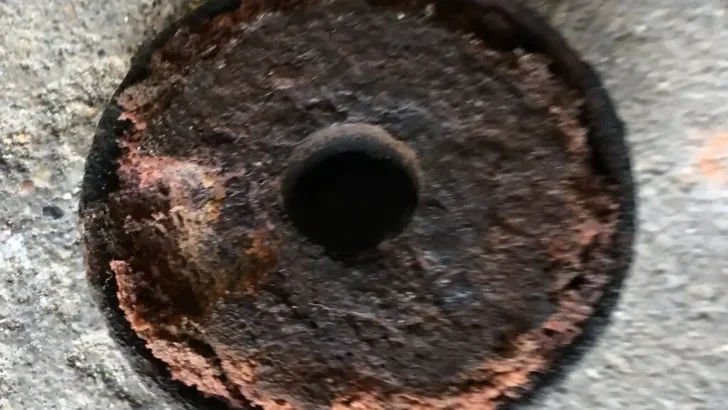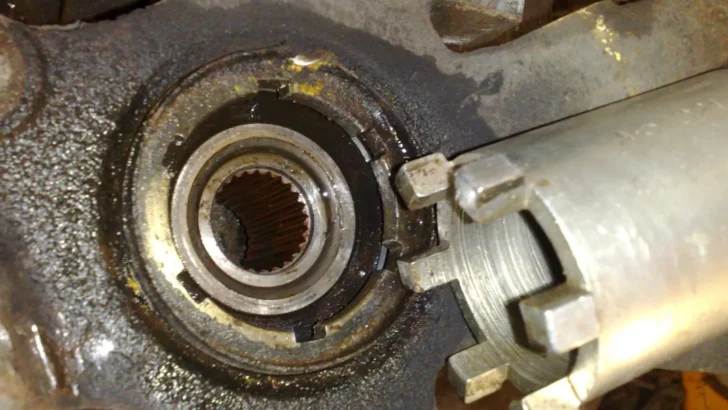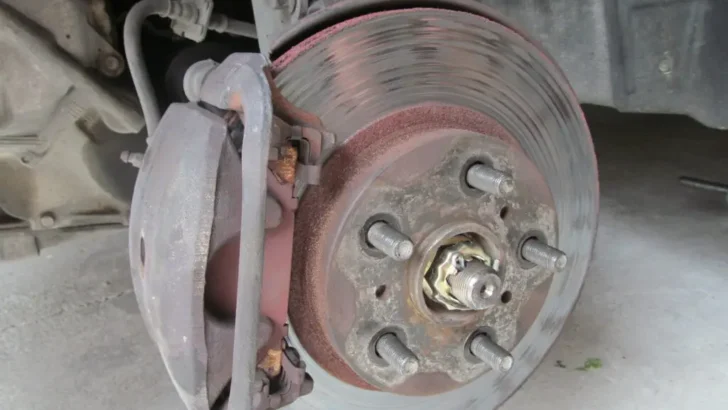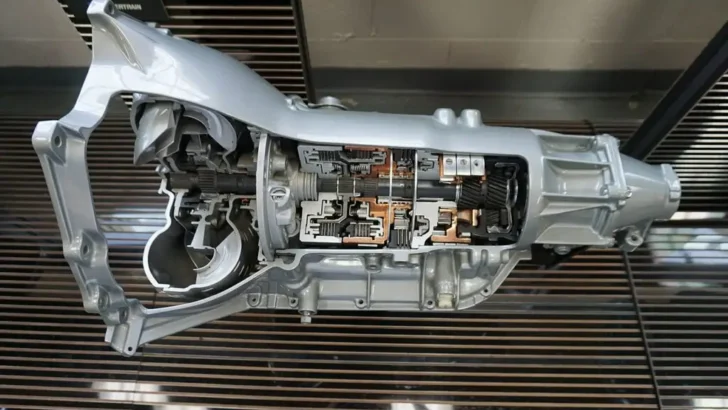Do you have a car that makes an annoying creaking noise when driven slowly? Not only is this an inconvenience, but it may be indicative of something more serious ailment.
In this blog post, we’ll examine eight potential causes and offer tips for fixing them – so keep reading to find out!
Key Takeaway
- If your car is making a creaking noise when driven slowly, it could be due to worn-out wheel bearings, brake rotors that have become uneven, bad calipers due to improper installation, an accessory belt that’s loose, timing chain issues, failing transmission components, CV joints that need replacing, or suspension bushings that need replacing.
- You can identify if your car’s suspension is causing the creaking noise by listening for specific sounds when going around corners or over bumps, performing tests such as shaking your car lightly with the parking brakes engaged, and visually inspecting the suspension for worn or broken parts, including bushings, tie-rods, and rear shock mounts.
- Driving a car that’s making a creaking noise is possible, but it’s not recommended as this sound could be an indication of a problem with the vehicle’s components such as worn brake pads, faulty suspension joints, or issues with the steering system, which may compromise safety and lead to further damage.
Car Making Creaking Noise When Driving Slow


The creaking noise you hear when driving slow could be due to a number of issues that range from worn-out suspension components, bad wheel bearings, damaged brake pads, and more.
1. Worn-out wheel bearings

Many car owners have had the frustrating experience of hearing their vehicle make an unusual noise, only to be stumped when trying to diagnose what’s causing it.
Fortunately, there are some common causes of strange car sounds that can easily be identified; for instance, if you hear creaking while driving, that could indicate worn-out wheel bearings.
Wheel bearings are essential elements in a car’s suspension system, allowing the wheels to rotate freely while supporting the weight of the vehicle.
A typical wheel bearing consists of an inner and outer race with rolling elements (either balls or cylinders) in between. These reduce friction while keeping your bearings rotating smoothly.
Over time, however, wheel bearings can become worn down, leading to increased friction and decreased performance. Furthermore, worn wheel bearings generate heat which could damage other components of the suspension system.
The bearings are what allow the wheels to rotate smoothly, and they take a lot of abuse over the course of a car’s lifespan. Eventually, these bearings may wear down, leading to creaking noises when driving slowly along with feelings of vibration as well.
If you observe any of these symptoms, it’s imperative that your bearings get checked out by a mechanic immediately. Although bearings are relatively inexpensive to replace, leaving them unchecked could eventually result in more serious damage.
2. Worn-out brake rotors

If your car is making a creaking noise while driving, it could be due to worn-out brake rotors. Rotors are circular discs that brake pads grip onto and slow down wheels; over time these can become worn down and develop ridges or grooves which cause brake pads to make noise as they try to grip onto the uneven surface of the rotor.
Brake rotors are an integral part of any vehicle’s braking system. These metal discs rotate along with the wheels, providing a surface for brake pads to grip onto, slowing down your car.
Unfortunately, brake rotors can wear out due to repeated use or exposure to elements, so they may need replacement at certain intervals.
Neglecting this issue will eventually lead to complete wear-and-tear on your brake rotor, and eventually, they won’t function at all. Fortunately, replacing worn-out brake rotors is a relatively straightforward process that can be completed within several hours.
When shopping for brake rotors, it is essential to select a trusted brand with an excellent warranty. Installation is usually straightforward but consulting with a professional mechanic for proper setup is recommended.
3. Bad calipers

If your car is making a creaking noise when driving slowly, it could be due to malfunctioning calipers. When these fail, they often become stuck in a semi-closed position where they apply pressure on the brake rotors as if you were constantly braking.
This is especially noticeable when going slowly; you can hear the clicking noise caused by constant contact between calipers and discs.
Car calipers are an essential element of a vehicle’s braking system, pressing brake pads against rotors to create friction that allows your car to stop. Most cars have four calipers – one at each wheel – mounted on either side of the rotor and connected to your pedal through hydraulics.
When the brake pedal is depressed, hydraulic fluid is sent to the calipers, forcing them to close. This applies pressure on brake pads which in turn apply pressure to rotors – slowing down wheel rotation and bringing your car to a complete halt. Although calipers are made to last for years, they can become worn or damaged over time.
In addition to making noise, malfunctioning calipers can also lead to brake problems or failure. Therefore, it’s essential that you have them checked by a qualified mechanic as soon as possible. With proper care and maintenance, your car will run smoothly for years to come.
4. Loose accessory belt

Have you ever noticed a grinding noise coming from your car engine when driving slowly? That could be an accessory belt. This small, relatively thin belt drives several engine components such as the alternator, power steering pump, and water pump. Most cars only have one accessory belt but larger vehicles may have multiple ones.
The accessory belt is a serpentine belt that drives various components on most vehicles, including the alternator, water pump, power steering pump, and air conditioning compressor. It usually runs at the front of the engine and is driven by either the crankshaft or camshaft in some models. Regular checks of this belt for wear and tension should be conducted to ensure optimal performance.
Regularly checking the condition of your accessory belts is an essential part of preventative maintenance. Fortunately, it’s simple to check for a loose belt: start the engine and listen for any squealing noises; if you hear one of them squealing, it could indicate that one is loose.
Next, open the hood and visually inspect all belts for any signs of fraying or wear. If you notice any damage, replace the belt as soon as possible. By taking these simple steps, you can help guarantee that your car’s engine stays in excellent working order.
5. Loose timing chain

If your car starts making a creaking noise when driven slowly, it could be due to an issue with its timing chain. While this problem is most commonly found in older models, it can affect any vehicle.
Timing chains are essential elements in the engine of a car, keeping its crankshaft and camshafts aligned so pistons and valves can move together in perfect harmony. The timing chains reside inside the engine, connecting the crankshaft to its camshaft (or camshafts).
Timing chain: an essential part of an engine, it should be replaced at regular intervals. Timing chain: composed of gears that rotate camshaft and crankshaft in sync.
Timing chains are essential in engines; they ensure all moving parts within the engine work in sync with one another. If one were to break or become damaged, this would cause the engine to seize up and cease operation completely.
Timing chains on most car engines eventually need replacing, depending on the make and model of a vehicle. On average, timing chains last anywhere from 60,000-150,000 miles depending on usage; however, it’s common for them to need replacement earlier if not properly maintained.
6. Failing transmission

A car transmission is a system of gears that helps propel the wheels of a vehicle. It connects to the engine and uses pulleys and belts to transfer power onto the wheels. There are two primary types of transmission: automatic and manual.
Automatic transmissions rely on sensors to determine when to shift gears, while manual transmissions require the driver to operate a clutch and shifter manually. Each type of transmission has its own advantages and drawbacks, but both are essential for making your car run efficiently.
Cars are built to last, but that doesn’t mean they don’t require some regular upkeep. Over time, parts can corrode or break, and fluids leak. When your transmission starts malfunctioning, you may hear all sorts of odd noises like creaking, grinding, and humming while driving slowly.
If your car is making any of these sounds, it’s essential that you get it checked out by a mechanic right away. A malfunctioning transmission is an urgent problem that could cause extensive damage if not addressed quickly.
7. Bad CV joint

The CV joint in a car helps transfer power from the engine to the wheels. Located at the end of the drive shaft and connected to the wheel hub, this joint allows the drive shaft to rotate while leaving the wheels stationary – an essential feature when turning.
Furthermore, this part is protected with a rubber boot that shields it from dirt and debris.
The CV joint is responsible for connecting the axle to the wheels, allowing them to pivot freely as the car turns. As it wears down over time, it may begin making a creaking noise or be damaged if your car hits a pothole or bump.
If you believe your car’s creaking noise is due to a failing CV joint, make sure it gets checked out by an experienced mechanic promptly. Otherwise, you could end up stuck on the side of the road with no way of getting help.
8. Worn suspension bushings

The suspension system on a car is responsible for providing a smooth ride. It consists of various components, such as shocks, struts, and springs. Another essential part is bushings made out of rubber or polyurethane that act as cushions between moving parts within the suspension.
Are you hearing creaking noises coming from your car while driving? It could be the suspension bushings. These rubber components help dampen vibrations and protect the suspension system of your car against wear and tear. However, over time they may become worn out and brittle, leading to creaks or squeaks while in motion.
When replacing suspension bushings on your car, it is essential to choose the correct type. Otherwise, you could end up with an uncomfortable ride.
Most auto parts stores can help you select the ideal bushing type for your vehicle; with just a bit of research, you can ensure your car has optimal suspension performance.
How Do I Know If My Car’s Suspension Is Causing The Creaking Noise?
You can determine if your car’s suspension is causing the creaking noise by listening for specific sounds, performing simple tests, and visually inspecting certain components.
Listening For Specific Sounds
The type of noise your car makes can give you clues about the condition of your suspension. A creaking or squeaking noise when going around corners or over bumps may suggest worn ball joints or struts. Similarly, a knocking sound might indicate problems with the suspension struts.
Performing Simple Tests
There are a few simple tests you can perform to check if your suspension is causing the creaking noise. One is engaging the parking brakes and then lightly shaking your car. If the sound reproduces, it could be due to issues with the suspension. Another test involves spraying a small amount of lubricant on the bushings. If the noise goes away temporarily, the bushings might be the source of the creaking.
Visual Inspection
Visually inspecting your car’s suspension can also help identify problems. Look for broken or loose parts in the suspension system. Check the tie-rods for any signs of metal-on-metal wear, as this can cause squeaking noises. Also, pay attention to the condition of the rubber bushings and joints. Worn or damaged bushings and joints can result in creaking noises.
Can I Drive My Car If It’s Making a Creaking Noise?
Driving a car that’s making a creaking noise isn’t generally recommended, as the noise could be a sign of an underlying issue that might compromise the vehicle’s safety or cause further damage.
While a creaking noise doesn’t necessarily mean your car is unsafe to drive, it’s crucial to understand that such sounds often indicate a problem with the vehicle’s components.
The noise could come from the suspension, brakes, or steering system, all of which play a critical role in controlling and stopping your vehicle.
For instance, if the creaking comes from worn-out brake pads, driving could become dangerous due to the reduced braking efficiency.
In my experience as a mechanic, I’ve seen cases where creaking noises were simply due to minor issues like unlubricated parts or loose bolts, which didn’t immediately affect the vehicle’s drivability.
However, I’ve also encountered situations where such noises were signs of more serious problems, like a failing suspension system, which required immediate attention to prevent accidents or costly repairs says 1Aauto.
How Much Does It Cost To Fix a Creaking Suspension?
The cost to fix a creaking suspension can range widely, typically between $200 and $5,000, depending on the specific issue and the make and model of the vehicle.
Repairing a creaking suspension involves diagnosing the exact cause of the problem and fixing or replacing the faulty component. This could mean anything from replacing a worn-out bushing to overhauling the entire suspension system.
The cost of these repairs can vary significantly based on the complexity of the issue and the type of vehicle you have.
For minor issues like squeaky or worn-out bushings, the repair cost can be on the lower end of the range, possibly even under $200 if you’re able to do the work yourself. However, more serious problems, such as a failing strut or shock absorber, can cost upwards of $1,500 to replace.
If the entire suspension system needs to be replaced, costs can escalate quickly. Depending on the make and model of your vehicle, this could run anywhere from $1,000 to $5,000 or more.
FAQs
Q: Can I fix the creaking noise myself?
A: If you have experience and knowledge in car repairs, you may be able to identify and fix minor suspension issues that are causing the creaking noise. However, it is recommended to consult a professional if you are unsure or lack proper tools.
Q: How long does it take to fix a creaking suspension?
A: The time required to fix a creaking suspension depends on the specific problem and the availability of parts. Minor issues can be resolved quickly, but more complex problems may take several hours or even days to repair.
Q: Can a creaking suspension affect other car components?
A: Yes, a creaking suspension can have a domino effect on other car components. Continuous driving with a creaking suspension can put additional stress on the joints, bushings, and other parts, leading to premature wear and potential failure.
Q: How often should I have my car’s suspension inspected?
A: It is recommended to have your car’s suspension inspected as part of regular maintenance, such as during scheduled service intervals or when you notice any unusual noises or handling issues.
Q: Can cold weather cause a creaking suspension?
A: Cold weather can make existing suspension issues more pronounced, but it is not a direct cause of a creaking suspension. The creaking noise is usually due to wear or lack of lubrication, which can be accentuated in cold temperatures.
Q: What should I do if my car’s suspension is creaking?
A: If your car’s suspension is creaking, it is best to take it to a professional mechanic for a thorough inspection and diagnosis. They will be able to identify the specific cause of the creaking noise and recommend the necessary repairs.
Conclusion and final thoughts
In conclusion, a car making a creaking noise when driving slow can be caused by a variety of issues such as worn-out suspension components, loose or damaged parts, or lack of lubrication.
It is important to address this issue promptly to avoid potential safety hazards and costly repairs in the future.
